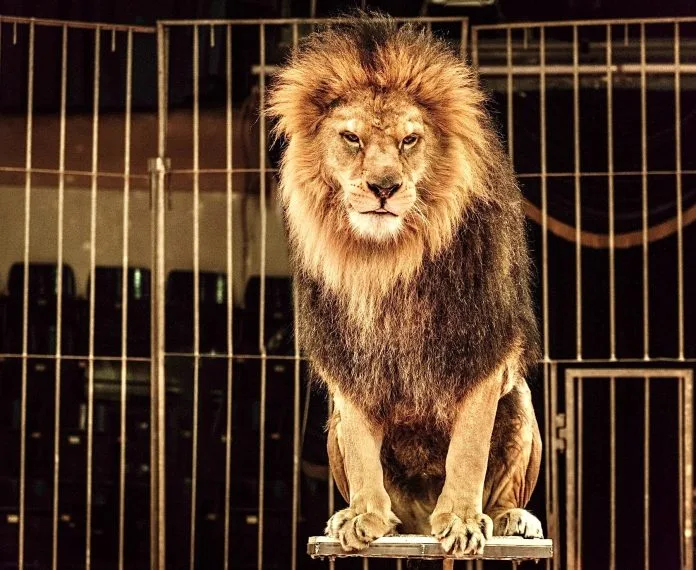In a landmark move, Governor Maura Healey signed a transformative bill into law on Friday, effectively ending the use of elephants, big cats, primates, giraffes, and bears in traveling exhibits and shows across Massachusetts. This historic legislation (H.4915) aims to protect wild animals from exploitation, harsh training techniques, and the stress of constant confinement and transportation. Under the new law, methods such as bullhooks, whips, and electric prods will be prohibited.
Preyel Patel, Massachusetts state director for the Humane Society of the United States (HSUS), expressed the significance of the legislation, stating, “After more than two decades of tireless advocacy to end the cruel exploitation of wild animals in circuses, our state has taken a monumental step forward. This historic legislation marks the end of an era where tigers, elephants, and other wild animals were forced to perform under deplorable conditions. Wild animals will no longer be subjected to a life of suffering for entertainment in our state.”
The bill was championed by Chairwoman Carole Fiola, Leader Brad Jones, Senators Adam Gomez and Bruce Tarr, and supported by key figures including Speaker Ron Mariano, Senate President Karen Spilka, and several committee chairs. Their combined efforts led to this significant victory for animal welfare.
Since 1990, nearly 160 incidents involving dangerous wild animals in traveling shows have been reported in the U.S., resulting in 10 adult deaths, 136 injuries to adults, and 73 injuries to children. Notable incidents include a 2017 attack by a capuchin monkey at the Brockton Fair, the death of Beulah, an Asian elephant, in 2019 due to a long-standing infection, and multiple instances of abuse and escapes involving elephants by various exhibitors.
Massachusetts joins several other states, including California, New York, and New Jersey, in enacting bans or significant restrictions on the use of wild animals in traveling shows. Representative Fiola, a sponsor of the bill, highlighted the strong public support for the ban, noting, “With over two-thirds of Massachusetts voters supporting the ban on wild animal acts, it’s clear that our constituents demanded an end to animal exploitation for entertainment.”
Senator Gomez added, “Her story is a heartbreaking reminder of the urgency of this legislation. With the passage of these bills, Massachusetts has taken a firm stand against such mistreatment and neglect, ensuring a more humane future for these animals.”
The new law is expected to significantly reduce animal suffering, protect their well-being, and encourage more ethical and humane practices. It’s a step towards fostering greater respect for wildlife and a call for other states to follow suit in banning wild animals in circuses.
